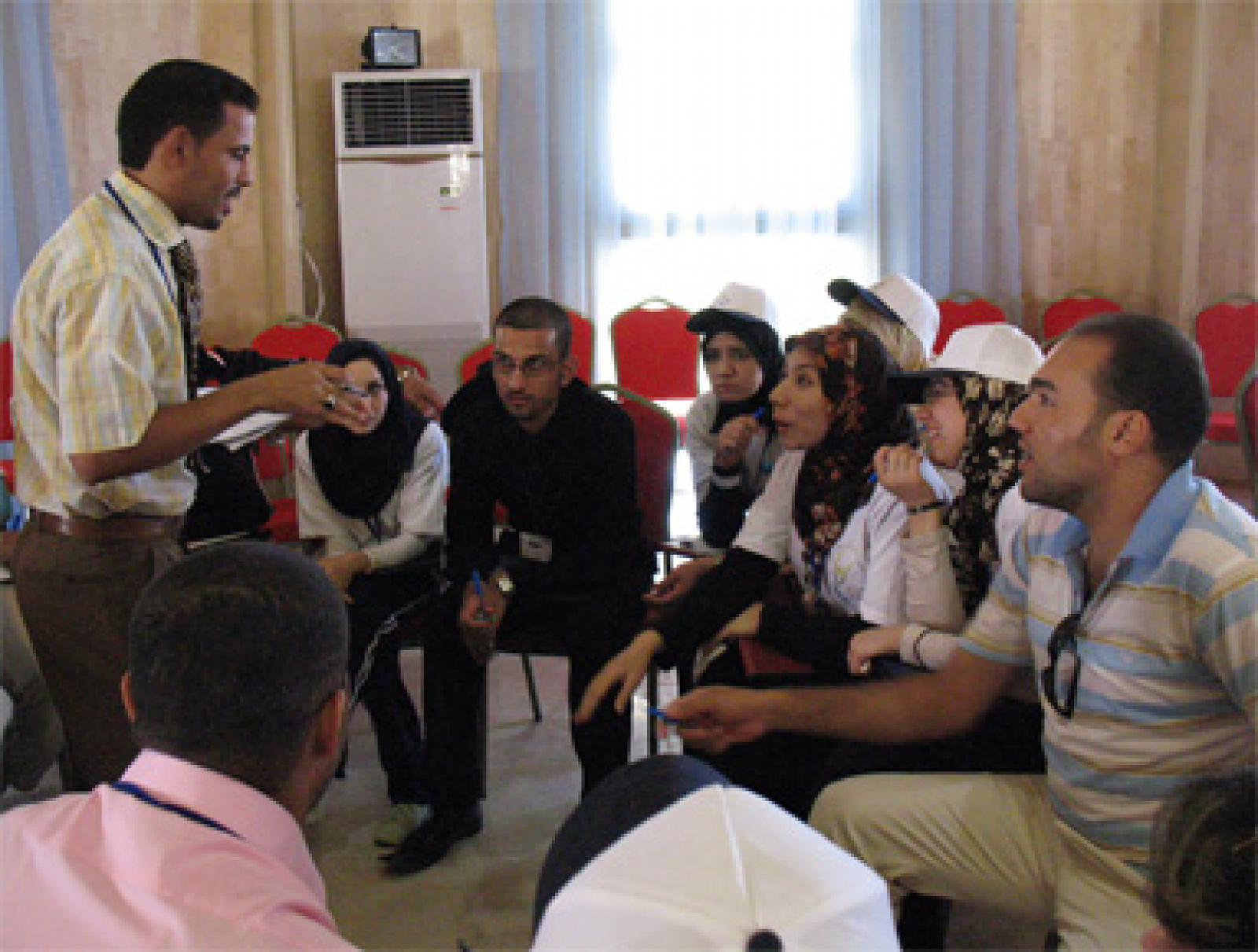
SHARE
A “Youth for Change” camp hosted by NDI brought together young people from across Iraq in July to share ideas about problems affecting youth in their regions, to identify their view of Iraq’s top two issues of national concern and to strategize about solutions.
Eighty-three activists ranging in age from 18 to 25 attended the camp, part of NDI’s Youth Empowerment Program (YEP). It marked the first time that the young people in the program—from different regions, ethnic backgrounds and religious affiliations—had been able to interact in person and share ideas.
The participants voted unemployment and lack of civil education as the top two issues of national concern to young people. Other issues raised included corruption, violence against women, and an unstable security situation.
After identifying these high-priority challenges, participants went to work on planning advocacy campaigns to address them. Their ideas included leafleting, holding community forums to garner support, and using a local radio station to broadcast public service announcements. To help develop these rough ideas into concrete plans, the participants will meet with NDI advisors over the next few months for updates and feedback.
A major goal of the camp was to create a foundation for a national network of youth leaders with the capacity to train others in advocacy and civic participation. To this end, participants from each region elected representatives to serve in a YEP coordinating body and carry out the national advocacy plans they had developed earlier in the program.
In campaigning for these representative positions, the participants used skills learned in training sessions conducted earlier in the year. They organized themselves into smaller groups and developed clear platforms. Each candidate was allotted only a minute to get his or her points across, requiring clear and succinct messaging. The campaign focused on the strengths and weaknesses of the candidates’ proposals, rather than on personal appeal.
A powerful unifying activity of the camp program was the Democracy on Air exercise, where participants cooperated to create a mock radio station with a variety of interactive programming. Radio station volunteers nominated a disc jockey and provided music, entertainment, poetry readings, on-air interviews, and roundtable discussions on issues such as upcoming governate council elections. The radio station drew more than three-quarters of the camp participants to gather and watch their “recordings.”
Additional skills gained in the camp included conflict resolution, media skills, and advocacy that would benefit participants professionally as well as in future political participation.
Pictured above: Leadership camp participants engage in a discussion.
—
Published on September 4, 2008


